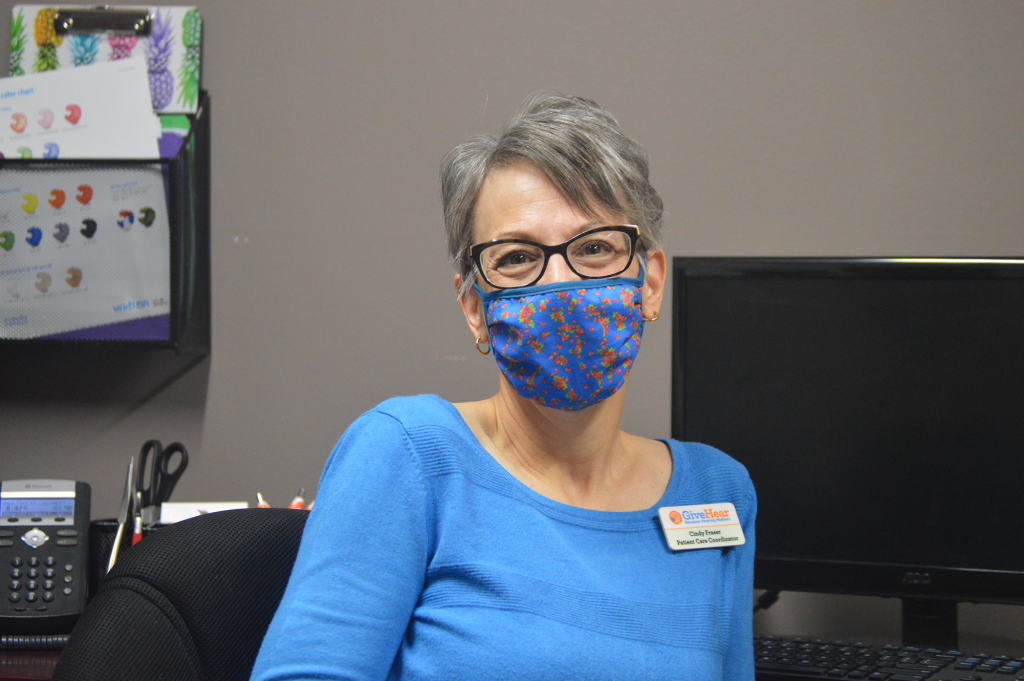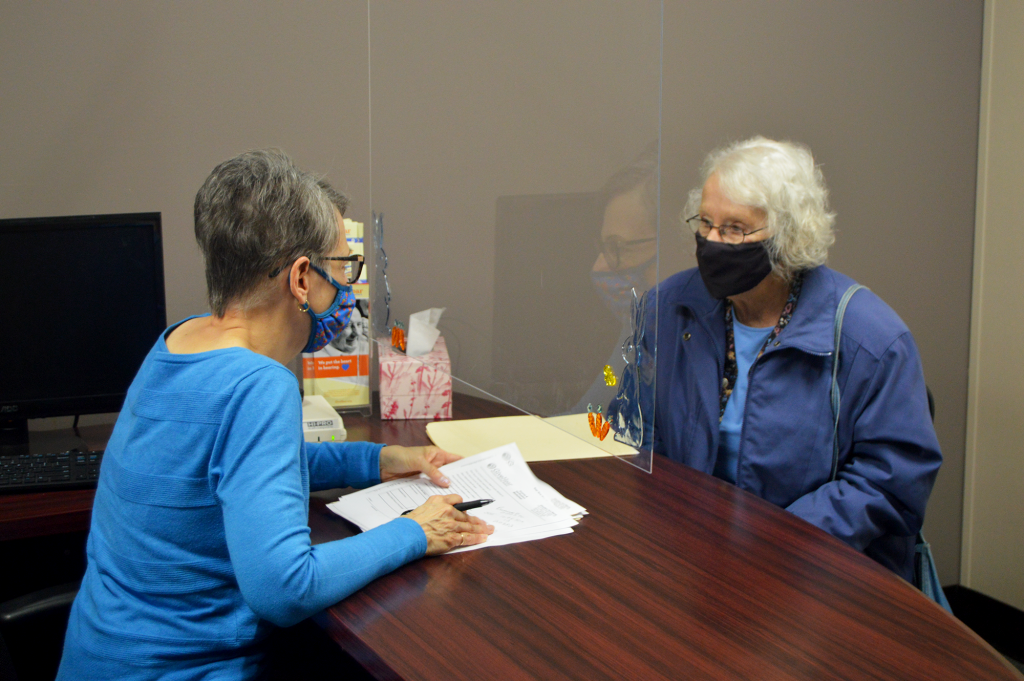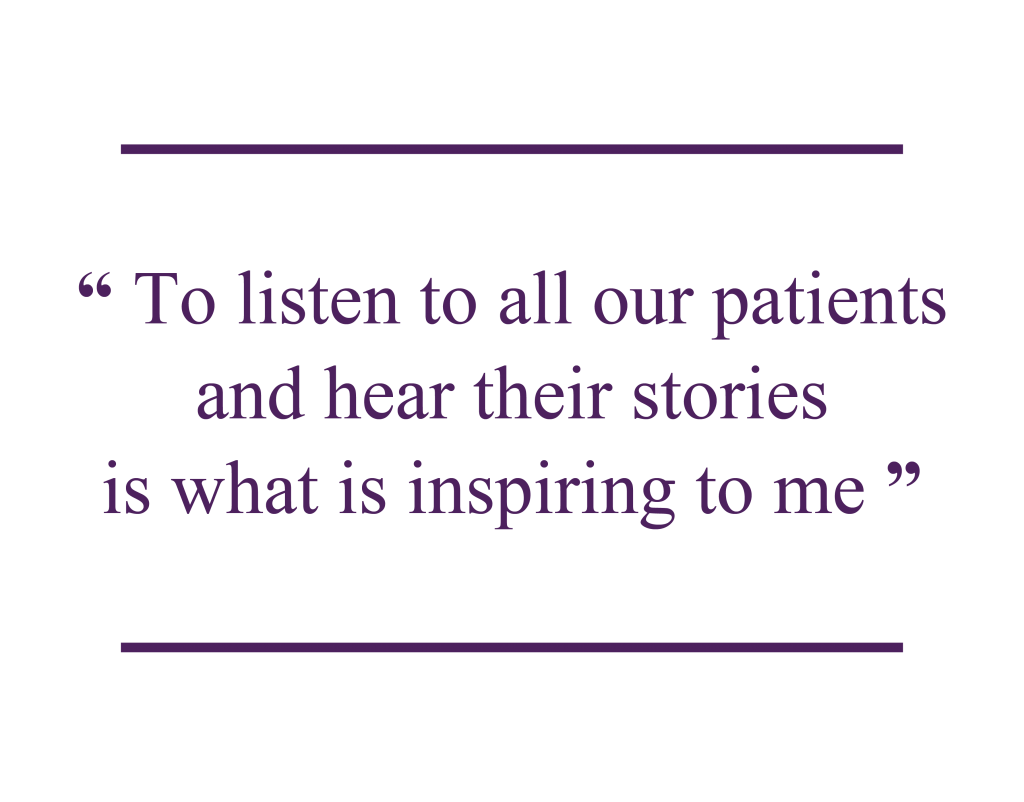Questions with GiveHear Patient Care Coordinator Cindy Fraser

Q: For those who don’t know much about your organization, please tell us about the work you do in the community.
A. GiveHear provides nonprofit hearing healthcare for anyone who wants to come here and meets our sliding fee scale parameters. We can see people with insurance or without insurance. We can see people of all ages because we start with infant testing and we work all the way up through adults. We are an Indiana First Steps provider so we see children with hearing loss and we are an Indiana HAAPI provider, which is another Indiana program for children with hearing loss. We are also a Medicaid provider and are licensed with most insurances.

Q. Explain the unique way your lower income patients are empowered to earn their hearing aids.
Anyone who comes to us and doesn’t have insurance and is paying cash for their hearing aids is asked to complete volunteer hours. Our sliding fee scale is broken into percentages based on the federal poverty guidelines. Each percentage of discount has a number of volunteer hours attached to it. The greater your discount, the higher number of volunteer hours you contribute. You could do as many as 36 hours of volunteering or as few as four hours. Patients can have friends and family members help them and we tell them they can go anywhere in the community that will take a volunteer as long as it’s not a private home or business. We have people volunteer at churches, temples, the animal shelter, food pantries, schools, libraries. With COVID it’s been difficult so we’ve created some online and unique opportunities for volunteering. Most people, regardless of their financial circumstances, don’t want to feel needy. This is an opportunity for them to have a stake in their care and feel empowered in that way. We’ve had multiple patients continue to volunteer even after they’ve completed their hours for GiveHear.
Q: What do you do for GiveHear?
I have been here about five and a half years and my job is to walk with patients from day one. When they call on the phone either myself or another staff member talk to them about our services to give them an idea if they qualify. Then I talk to them about the sliding fee scale and help them understand their options. My job is to help them understand the financial parameters and then walk them though that. Then once the audiologist and patient decide how to move forward, it’s my job to make sure their hearing aids are ordered, everything is here for them when their fit is scheduled, and all of their paperwork is taken care of. Our regular patients often call with ongoing needs like batteries or a six-month check and so I help with those needs too.

Q: How do your clients inspire you?
We have amazing stories. We had a gentleman recently who was involved in a hit and run and lay in a ditch for six hours before anyone found him. He had some brain trauma that caused some hearing loss. It was amazing to hear his story and what he had been through and how much he still wanted to accomplish in life. We had two patients that came to us from the same nursing home, one was 103 and the other 101 and they wanted new hearing aids because they are still engaged in life. Then there are our Burmese patients who will tell you what they went through living in the refugee camps and what it took to get here. To listen to all our patients and hear their stories is what is inspiring to me. I love the human spirit. As low as it can get, people can rise above it as long as they have the right tools. That’s what I love about this work—seeing people succeed in spite of their challenges.
Q: How do you ensure that each client receives high-quality services in a respectful and dignified manner?
We have hired the best. We have the best audiologists, our program director has 20 plus years in hearing healthcare, our billing and finance director has been here since day one – she was the first employee. Everybody here is so skilled at what they do and everybody here has a passion for hearing healthcare. That makes a huge difference. It’s not about hearing aids, it’s about hearing healthcare. We do more than hearing aids, we do lots of diagnostic testing. I feel like we’re providing top notch hearing healthcare to people of all ages because of all the people we have here and the skills we have. Everyone’s job is integrated. Everyone here loves people and wants to see our patients succeed.
Q: How can people learn more about your organization?
People can find more information at GiveHear.org. There you can find information about the organization’s work to offer audiology services and hearing aids at a reduced cost and on a sliding fee scale to underserved children and adults in our community. You can also find information about how to volunteer with GiveHear or make a donation.
